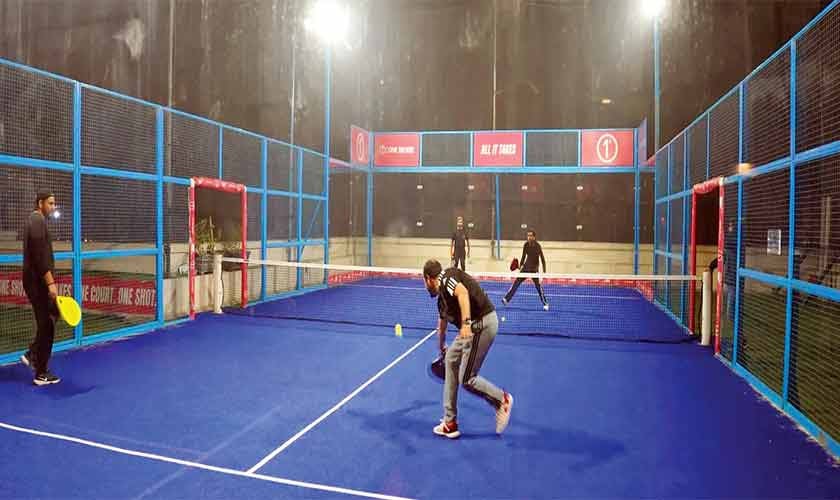Picture this: it’s getting dark in Lahore, the floodlights are buzzing, and the air is thick with late-summer humidity. On a glass-walled court, four friends are locked in a rally so intense it could soundtrack a Netflix montage. One is in sleek athleisure, another in a shalwar kameez with trainers hastily laced, and the other two are laughing so hard mid-point they nearly miss the ball.
That’s padel for you — a sport that has turned competition into comedy, sweat into social currency, and evenings into something worth looking forward to. It’s not hard to see why.
Hungarian-American psychologist Mihaly Csikszentmihalyi called it flow — the elusive state where skill and challenge meet and time disappears. Padel makes flow accessible. Unlike golf, which requires patience, or tennis, which demands years of drill, this game offers instant gratification. You start with chaos and, within a few matches, you’re hooked.
It’s the zone artists find in their work and gamers in marathon sessions; only here, it’s four people trading smashes in posh localities such as the DHA, rediscovering what joy feels like.
And this joy has rewritten the (privileged) Lahoris’ social calendar. Once upon a not-so-distant Sunday, the highlight of their week was a sun-downer or a sprawling brunch: eggs benedict, avocado toast, and an Instagram story to prove you were there. Now? Those same people are trading mimosas for rallies.
The crowd that was once stuck in boardroom malaise and back-to-back benders has found something better. Cue padel: aesthetic, performative, and yes, Instagrammable.
The inclusiveness has been even more refreshing. Women, long kept to the sidelines of Lahore’s competitive sports, are here in force. Mothers, daughters, friends, colleagues—all in sneakers—claiming space that once wasn’t theirs. Add kids, professionals, even retired people, and you’ve got a rare moment in the city’s culture: an activity where generations and genders mix.
According to psychologist Gabor Maté, addiction isn’t about weak will; it’s about pain. People chase compulsions to soothe deep wounds. Could it be that padel is addictive not because of dopamine, but because it fills a void?
But Lahore is still Lahore. The barriers to entry remain real: imported rackets and pricey rentals make padel a luxury. In Spain, where padel has exploded, public courts are free and scattered across cities. Here, joy is still gated.
With the economic crunch and political storm clouds overhead, it’s hard not to see the irony—our most exhilarating new pastime is also one of the least accessible.
Of course, there’s that familiar local twist. A certain segment is keeping things in the family: entire complexes are booked for invite-only tournaments and courts built for cousins. Sometimes the doubles pairings read less like a draw sheet and more like a wedding list. Honestly, both require stamina.
With the boom has come the inevitable hustle: pop-up organisers turning courts into cash machines, tournaments multiplying faster than teams, and everyone with a spreadsheet suddenly a league commissioner. It’s all part of the spectacle — padel as a pastime, and padel as a business model.
This hasn’t dimmed the wide appeal of the sport because padel is addictive in a way that feels different. According to the 20th-century Hungarian-Canadian physician Gabor Maté, addiction isn’t about weak will; it’s about pain. People chase compulsions to soothe deep wounds.
Could it be that padel is addictive not because of dopamine, but because it fills a void?
Padel is structured, social, and rewarding—even healing. Maté sees addiction as relief-seeking behavior; we can read between those rallies: folks aren’t just hitting balls, they’re hitting stress, isolation, and stagnation.
So yes, Lahore has found its new obsession. Maybe the hope is that, like Spain, one day we’ll have public courts too, where anyone can grab a racket and slip into the flow. Until then, the courts we do have will keep echoing with laughter, smashes, and the occasional inside joke about couples as team drafts.
For a city that’s been weighed down by fatigue, inflation, and endless news cycles, that sound is radical and healing. And that sound, finally, is some joy.
https://www.thenews.com.pk/tns/detail/1345128-a-pastime-or-a-business-model


